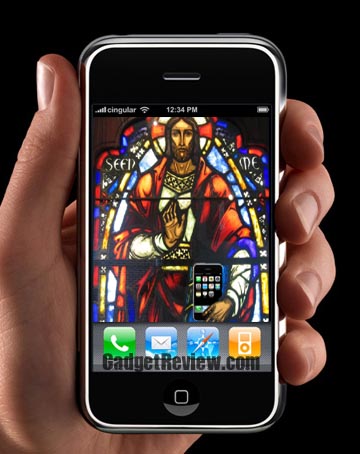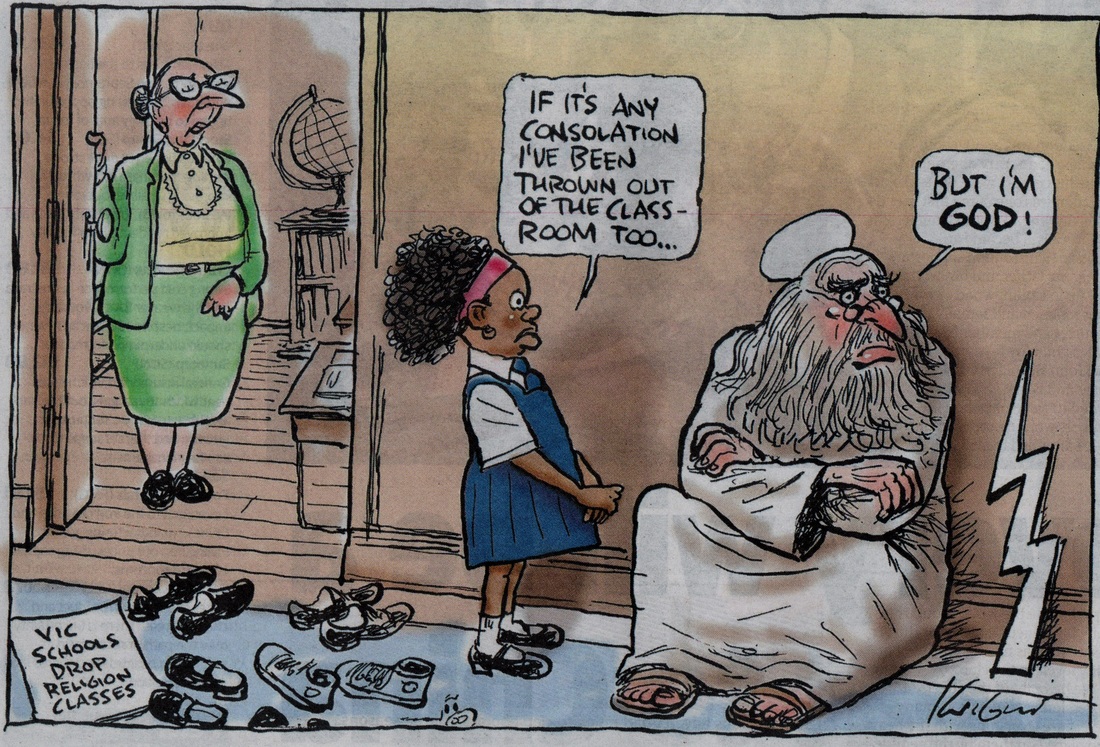The Future of Religion in Australian Society
|
Add the BOLD TYPE words to your glossary then write a short piece on your thoughts on the future of Religion in Australia. (100 words)
The changing face of religion in Australia comes not only from a recent increase in faith options, as migration and influence make their mark. Many Australians could now be considered ‘ unchurched’ as the figures from recent census returns and other inquiries show. An increasing percentage describe themselves as having no religion, and in terms of regular attendance at church, or even calling upon a religious community for key ‘rites of passage’ such as naming/christening of children, weddings and funerals, the figures are disquieting for most religious bodies. Charismatic and Pentecostal groups have high attendance rates, but whether this is a phenomenon involving continuing adherence of long-term members or rather the zeal of the neophyte is not always clear.
|
|
Speculation on the spiritual future of Australia needs to take into account seemingly contradictory features. There is the well-known Australian aversion to the formalities of religion, and opposition to the ‘wowserism’ often associated with the Christian churches. When the trend throughout the Western world is for continuing decline in formal religious observance, the prospects for a revival of interest in religion in Australia look bleak.
Alongside this is the fact that the churches still earn considerable respect from many non-churchgoers for their support for the disadvantaged and the voiceless in society. The Rev. Alan Walker, outspoken on social inequity, although conservative theologically, won admiration from many outside his Methodist Church, but also criticism from within it for his views, including his opposition to the war in Vietnam. On controversial social and ethical issues, the respect accorded to church spokespeople may be mixed with irritation or hostility. The churches may be advised to ‘stick to religion and not poke their noses into politics’, or to refrain from imposing their values on the community as a whole by bringing pressure to bear on politicians. Young people who are currently outside the church, either through alienation or boredom, may return to religion in later life, although it may not be to the faith in which they were brought up. Non-Christian religions and what may be broadly classified as New Age spirituality may gain the adherence of a number of disaffected ex-Christians. This may be a cheering prospect for Christians who find that religion as such is still on the agenda, or it may distress those who feel either that Christians have failed to convey the gospel message adequately, or that the population has been secularized and paganized and is susceptible to any new fad, without having adequate means of discrimination. If we compare the situation today with that at the start of European settlement in Australia, we notice that the equation European = Christian, and Christian = European no longer holds. At the same time we may conclude that in may ways this equation was never complete, and did not always allow Christianity to speak for all classes, when it was so closely linked to social and political institutions and the status quo. Religion and culture are inevitably connected, but if religion dominates culture entirely, hypocrisy often seems to follow, along with the turning of clergy into politicians. If culture imposes the prevailing social values on the established religion, religion loses any spiritual, transcendental validation, and becomes merely the mouthpiece of the dominant forces in society. For religion to maintain its dual functions of conservation and critique, it seems to need a critical distance in relation to a given culture. It may be that some religions are better suited to maintain society as it is and justify its existence, while others are fundamentally prophetic. Whatever the truth of this, all faiths now have to acknowledge the existence of other world views in a way that is unprecedented in human history. Where religion gave support in the past to the group, tribe or nation with its own deity or form of spirituality which validated that group’s way of life, such a function today is of limited use. Australian society as it exists today has been the beneficiary of powerful religious traditions in its culture and ethical framework, even where these are unacknowledged or unknown. Such traditions are under challenge on several fronts, either in thoughtless rejection of the past or in considered questioning of assumptions which tied religious expression to a particular unchanging format sanctioning a particular kind of society. If religion, and particularly Christianity, is to have a significant role in the Australian society of the future, it will need to undergo a profound self-examination. Australian society and culture will also need to jettison some of its stereotyped assumptions on where religion does and does not fit in the life of the ordinary Australian. |
GLOSSARY
unchurched Charismatic Pentecostal neophyte espousal religious observance alienation New Age spirituality adherence disaffected secularized paganized discrimination hypocrisy clergy transcendental prophetic deity stereotyped Should religion be studies in State Schools?
| ||||||

